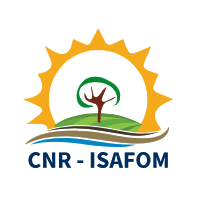LIVINGAGRO


CNR - Isafom is partner of the project "LIVINGAGRO - Cross-Border Living Laboratories for Agroforestry" funded by the ENI CBC Med Programme 2014-2020, under the first call for standard projects, with reference to the thematic objective A.2 "Support for education, research, technological development and innovation", priority A.2.1 "Technology transfer and commercialisation of research results".
With a total budget of EUR 3.3 million and an EU contribution of EUR 2.9 million through the ENI CBC Med programme, the LIVINGAGRO project involves 6 organisations from 4 different countries including the Agenzia Forestale Regionale per lo Sviluppo del Territorio e dell'Ambiente della Sardegna (Fo .Re.STAS) as Lead Partner, the National Research Council, Department of Biology, Agriculture and Food Sciences, DISBA (PP1) and ATM Consulting sas (PP5) from Italy; the National Centre for Agricultural Research and Extension, NARC (PP2), from Jordan; the Lebanese Institute of Agricultural Research, LARI(PP3) from Lebanon and the Mediterranean Agronomic Institute of Chania CIHEAM-MAICH (PP4) from Greece.
|
Agroforestry systems, understood as multifunctional land-use models in which both agricultural crops and tree and/or animal species coexist, in the Mediterranean regions are rooted in a solid culture of tradition and niche production. However, although widely diffused in the Mediterranean environment, these systems today fail to structure their knowledge and innovations in order to achieve an integrated development model based on the adoption of good practices for the sustainability of production, the protection of biodiversity in distinct ecosystems, the transfer of innovation and the increase of profitability of the realities involved. LIVINGAGRO proposes to tackle these problems using an "Open Innovation" approach that implies the creation of two "LIVING LABORATORIES" capable of promoting the economic and social development of rural areas and facilitating the interaction between supply and demand for innovation among the various stakeholders, eliminating geographical and cultural barriers. |
A specific focus will be placed on the multifunctional olive tree system (Living Lab 1) and grazed forests (Living Lab 2). Olive cultivation is representative of many Mediterranean rural areas, and traditionally olive groves were and still are often managed as agroforestry systems, in combination with cereals, fodder legumes and/or grazing. Grazing in wooded formations is a widespread agroforestry practice in the Mediterranean where it strongly contributes to sustaining local economies by providing both plant (wood and non-wood products) and animal (milk, cheese, meat) products.
For more information, please visit the 'LIVINGAGRO' project website hosted by ENI CBC Med at the following link: https://www.enicbcmed.eu/projects/livingagro
Last update
28 March 2025, 12:33

 CNR - ISAFOM
CNR - ISAFOM